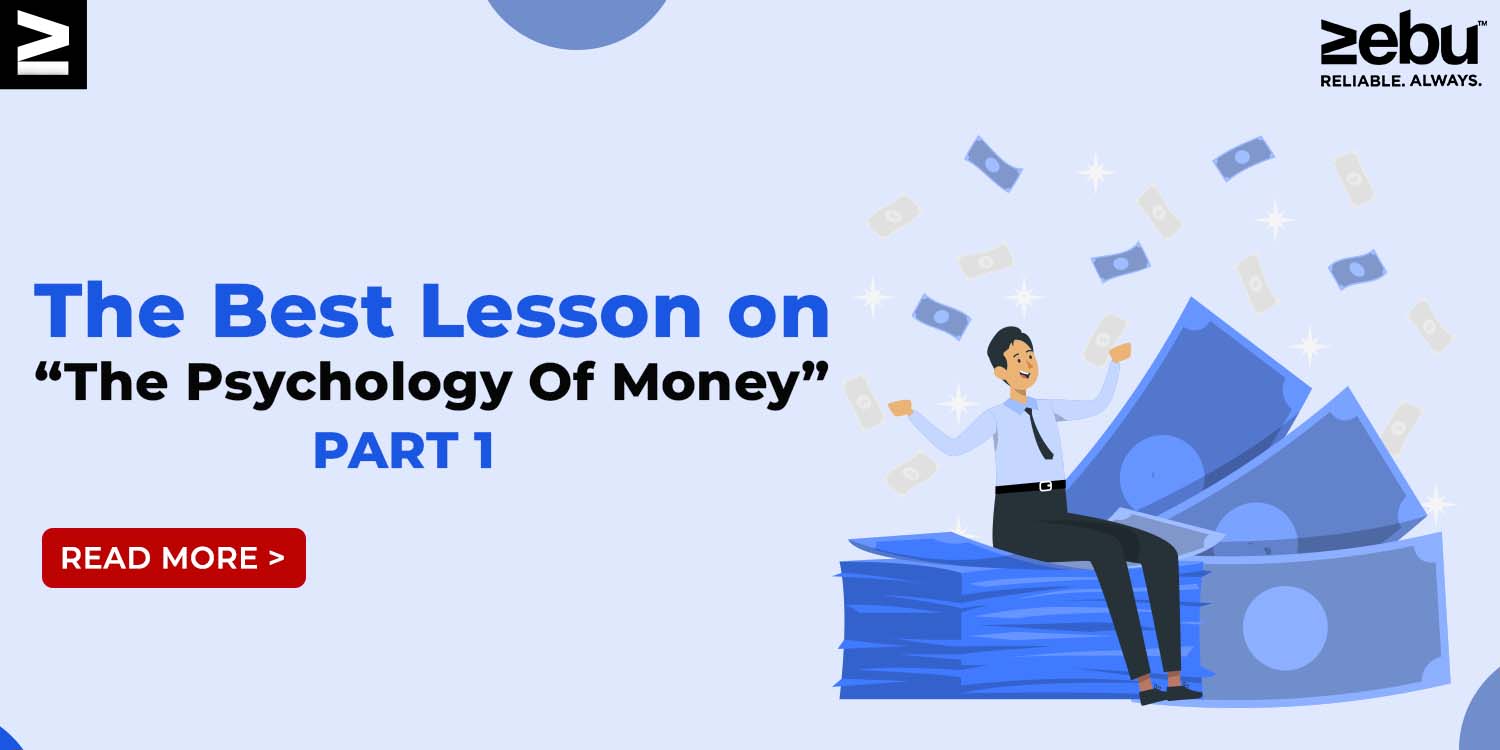
In The Psychology of Money, Morgan Housel shows you how to get along better with money and make better financial decisions. He doesn’t try to make people seem like machines that can maximise their return on investment. Instead, he shows how psychology can both help and hurt you.
Main Points
The real world isn’t a theory – the problem is that studying or having an open mind can’t really make us feel the same way that fear and uncertainty do.
We’re not like mathematical equations. Reading about historical events like stock market crashes or how stocks have gone up and to the right over time can teach us a lot, but it’s not the same as actually going through them. So be careful. You might think you can hold on to your stocks during a 30% drop in the market because you know that only fools sell at the bottom. However, you won’t know what to do until you actually go through a drop of that size.
Risk and reward
It’s easy to think that the quality of your decisions and actions is the only thing that affects your finances, but that’s not always the case. You can make smart decisions that lead to bad financial results. You could also make bad decisions that turn out to be good for your finances. You have to think about how chance and risk will play a role.
To make it less likely that people will stress how much individual effort affects results:
Be careful of the people you both look up to and look down on. Those at the top may have gotten lucky, while those at the bottom may have lost money because they took more risks.
Pay less attention to individual people and more attention to larger trends. It’s hard to copy what successful people have done, but you might be able to join larger patterns.
But what’s more important is that even if we agree that luck plays a role in success, we shouldn’t be too hard on ourselves when we fail because risk also plays a role.
Be kind to yourself when you make a mistake or find yourself in a dangerous situation. Since the world is unpredictable, if something goes wrong, it might not even be your fault.
What Buffett Says
According to legendary investor Warren Buffet, there’s no reason to put our needs and resources at risk for something you don’t need.
It’s easy to make a goalpost that can be moved. When you reach one of your goals, you move on to the next one. The cycle will never stop. Often, you do this because you’re comparing yourself to others, and most of the time, you’re comparing yourself to someone higher up on the ladder.
Someone else will always have more money than you do. Not a problem. It’s fine to look for ways to make more money, but don’t risk what you already have to get something you don’t need.
More lessons from the book follow on the next article.
Leave a Reply